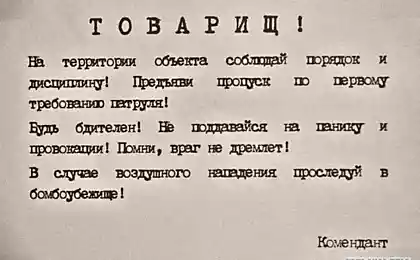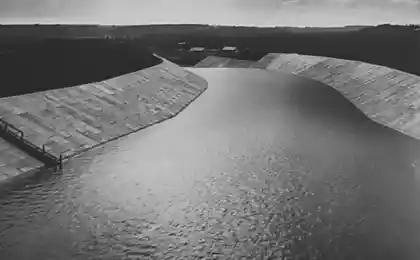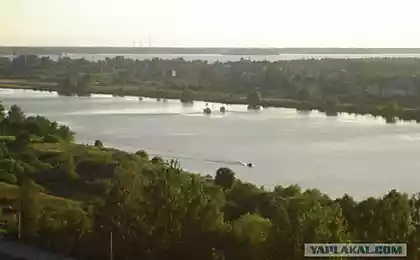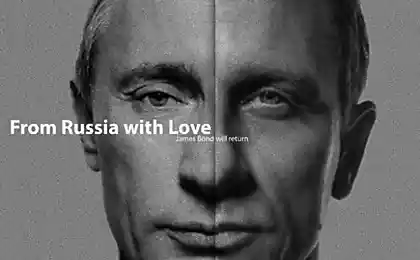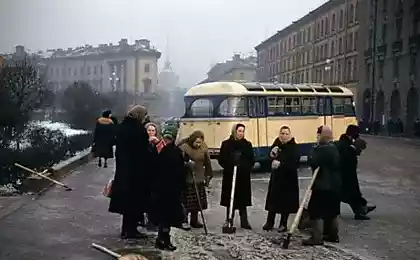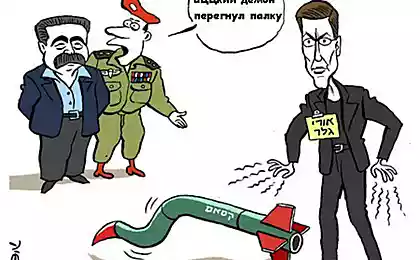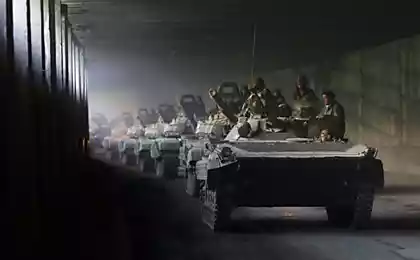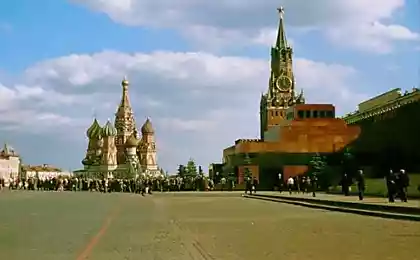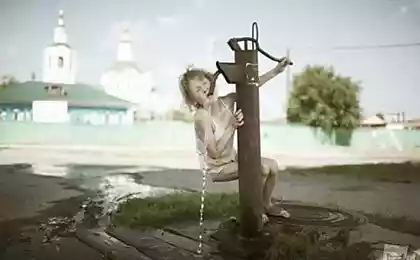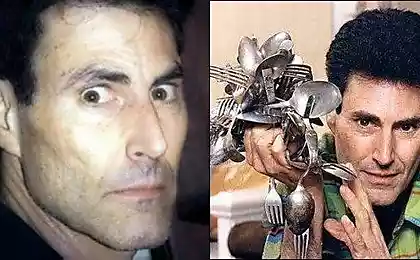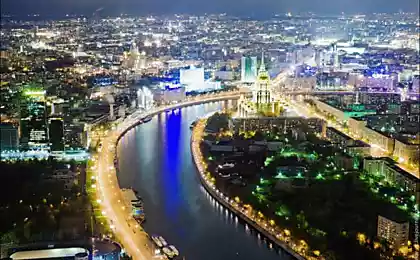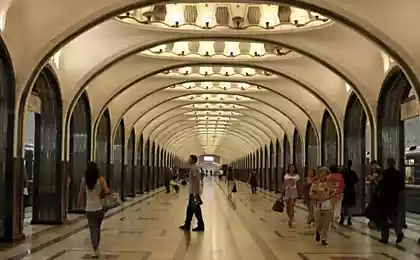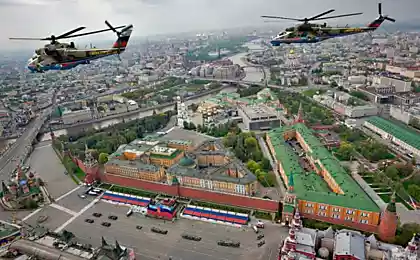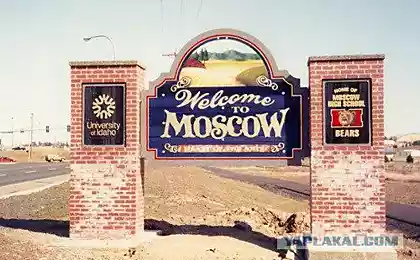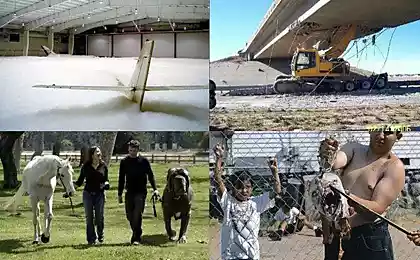1279
Gorgeous photos of Moscow 1920
In the hands of the author got a great photo album of Moscow 1920, which was published in Germany. In the album are rare and unique photographs, which starred a foreign photographer. I suggest you look at the most interesting pictures from this book. I guarantee, within the post will be very interesting! Now we've learned that the Moscow River due to various weirs and spillways can barely fettered by ice, and even some 90 years ago, all the Luzhniki (and the name is not easy, given at a filling meadows) is a huge snowy space with a few houses. The border runs through the city vidneyuscheysya far Moscow District Railway, which has already in the town boundaries towering towers of Novodevichy Convent. Right from the monastery already whiten the then new buildings, now constructivist quarter between the two outputs of m.Sportivnaya. Now it is an expensive area of central Khamovniki, and then - the outskirts of the city, as much as what the Garden Ring in the center of a tram need to get half an hour.
View of the Moscow River, the Kremlin and Christ the Savior Cathedral to Big Moscow River bridge.
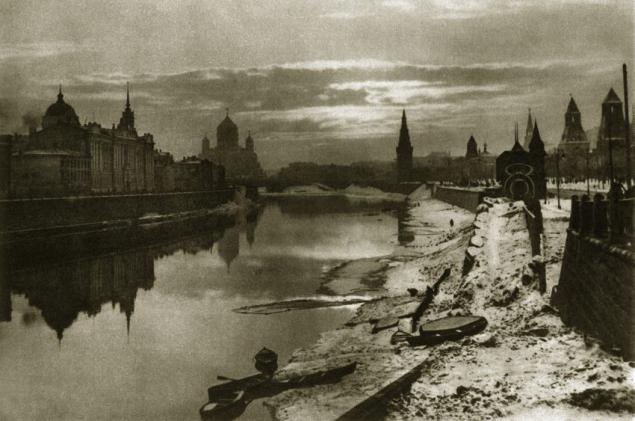
Winter View of Moscow from Sparrow Hills.
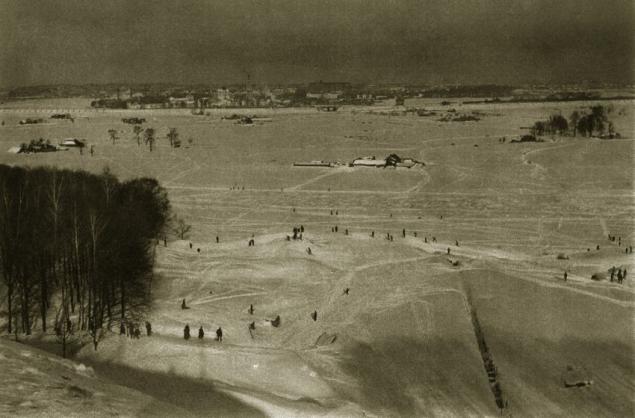
Note that before the construction of sluices, reservoirs and hydro level of the Moskva River varies greatly depending on the season. In the winter and hot in summer, for example, could greatly reduced, so that in some places you can go on foot, and the river. But every spring up, sometimes going beyond the edge of the embankment.
View of the Kremlin from the Kremlin
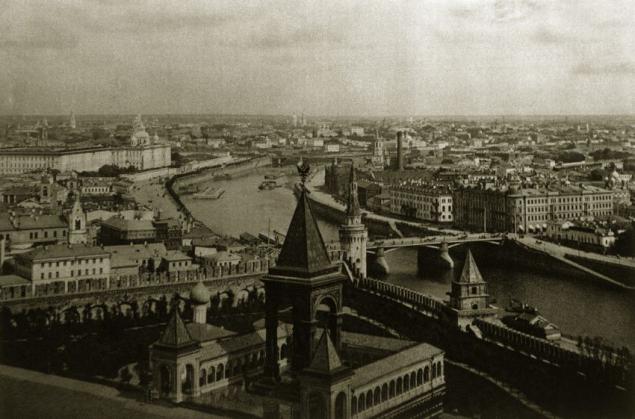
In the foreground, in the tent stands a monument to Alexander II the Liberator. For extensive galleries of the people monument called a bowling alley.
In 1918, work enthusiasts conducted Saturday and dismantled a monument to the king. On this Saturday, even Lenin came shabby timber, as in children's books, numerous beautiful illustrations, documentary chronicle not been so beautiful:
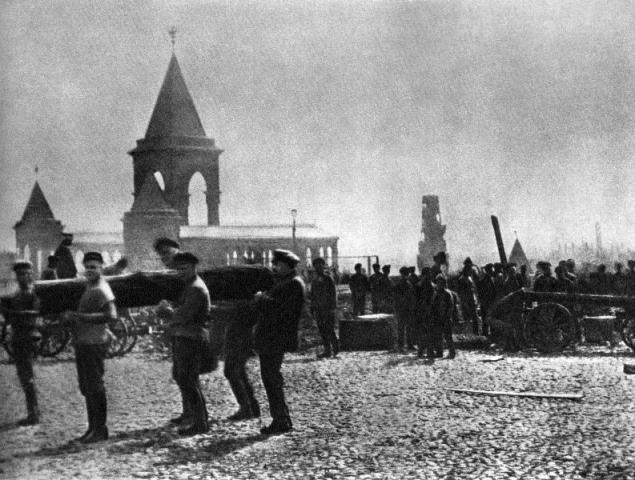
View of the Kremlin from the site of the Temple of Christ the Savior
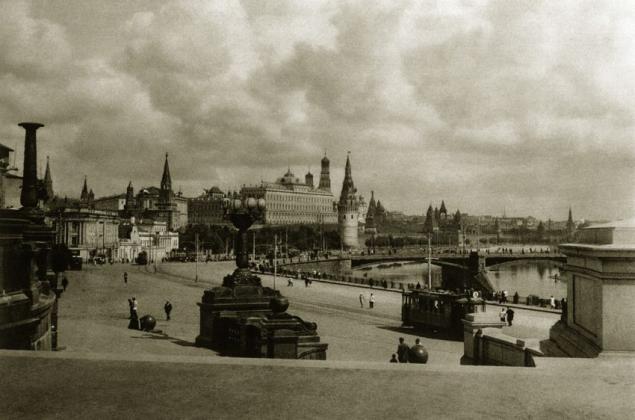
On this and the next picture does not even want to comment on. Just Look at the pre-revolutionary more details. How to make lanterns, embankments tram poles. This urban culture had flourished even more in 1930, but after the war it went somewhere not there and we came to what we now see on the streets, in contrast to European cities, where the tradition has not been interrupted.
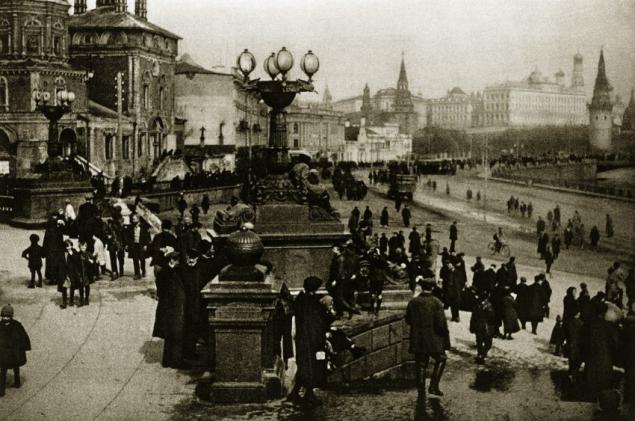
And almost still in the pre-revolutionary in headdresses. Exit without headgear - goof, and the ugly somehow. All the same, what is now the city in undershirt shirt-alcoholic roam.
View of the Kremlin towers and angular Beklemishev. Note tower has bleached, and the Kremlin is possible whitewashed because unpainted old Russian tradition means disorder. What came to power the Bolsheviks red and commanded the Kremlin contain only red.
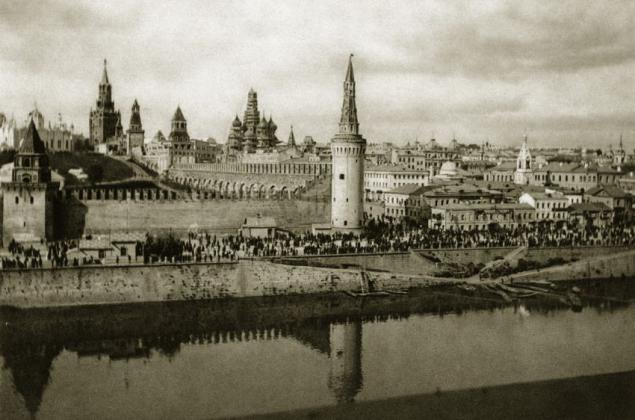
Note that before the war, almost all Vasilevsky descent was built up, and the old bridge Moskovretsky is to the right, behind the scenes
Obsharpannosti white Kremlin embankment and comfortable with an alley
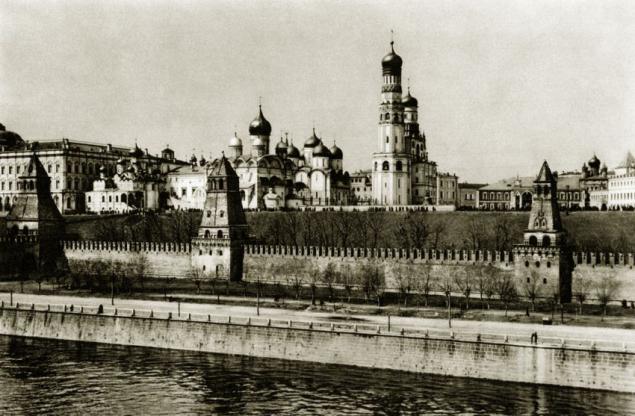
When all complain that, say, as opposed to any European city, in Moscow, there is the old town, do not hesitate to disagree that is. Old city of Moscow - the Kremlin is. This is the initial area within the ramparts, as in any other European city. While the authorities under Stalin finally closed access to the Kremlin, it was the entrance area - all the gates were open, you could walk through any tower. And now the official entrance to the Kremlin, Kutafya tower was a through
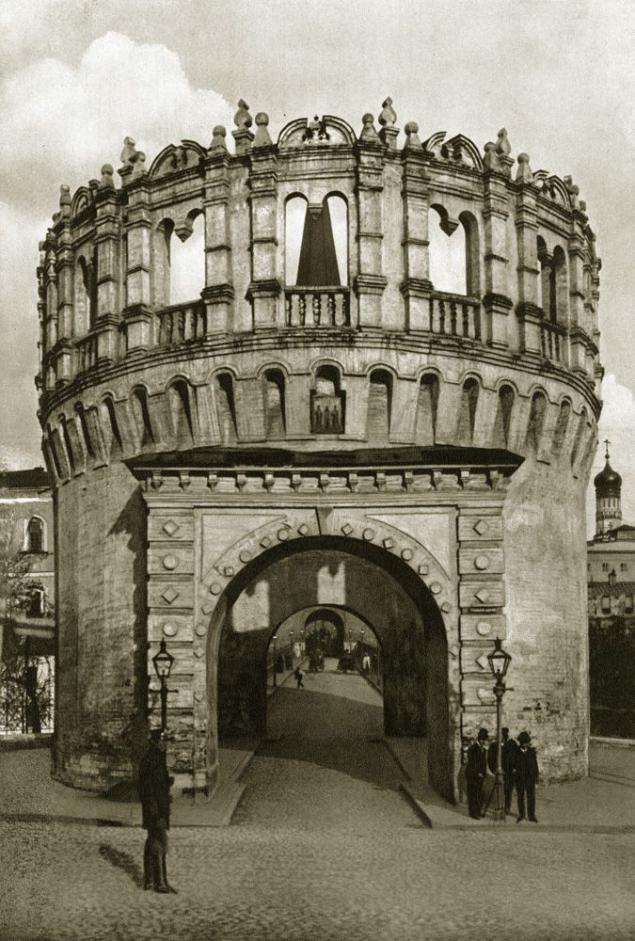
But the lost treasure of the Kremlin. Church of the Savior on Bor, known since 1330 and demolished in 1933
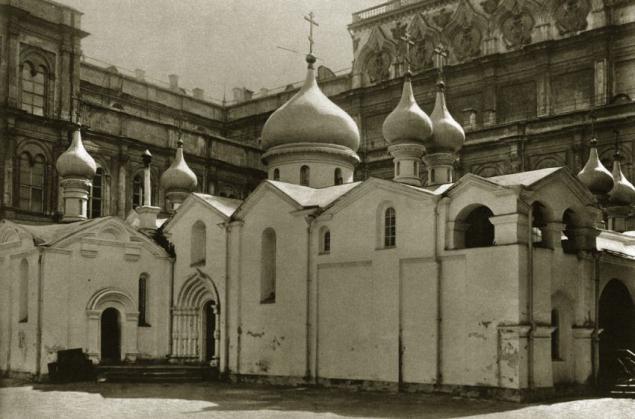
Church for many centuries, of course, was rebuilt, but was considered the oldest building in Moscow that, nevertheless, it did not save. In Moscow, I went to a legend that Stalin, driving in a car near the church and saw its walls piled wood in the hearts vokliknul "Disgraceful! Remove! "Makes clear what exactly was unhappy with the" father of the peoples "and were not demolished the temple.
New values:
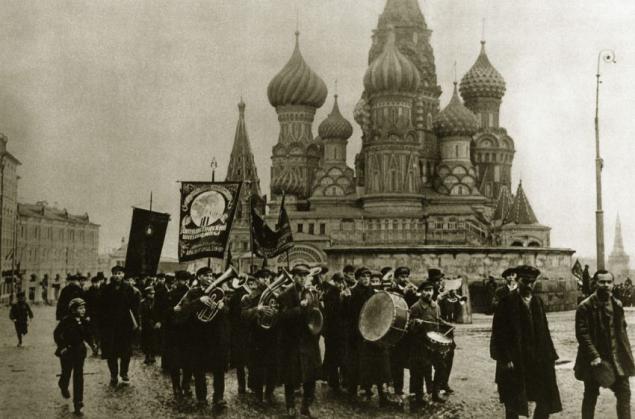
Wooden Mausoleum
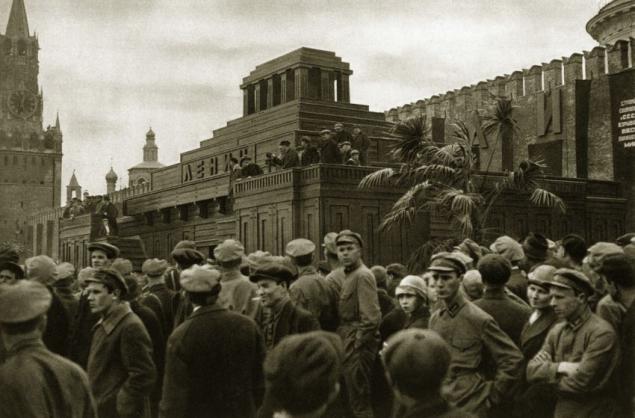
Immediately after the death of Lenin, first hastily built a cube, but in the same 1924 it was replaced by a wooden step pyramid, which in turn was replaced by a stone mausoleum quadrupeds all already in 1930. Especially touches tree on Red Square
Wall:
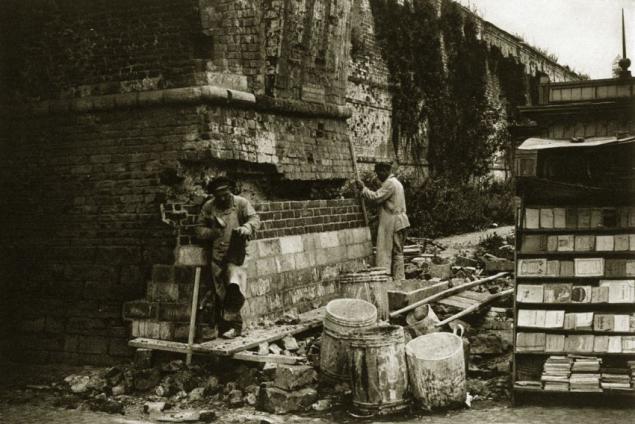
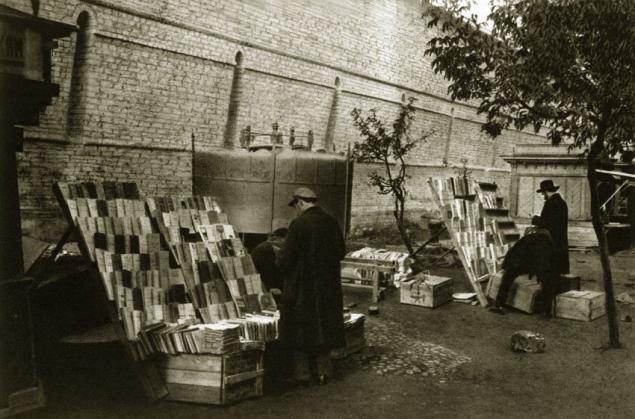
And this is one of the most beautiful squares of Moscow, unfortunately completely destroyed - Lubyanka
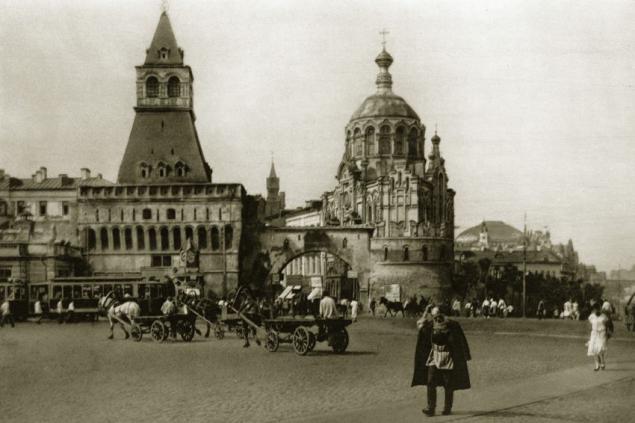
Visible narrow passage with Nicholas through China city wall with towers and a huge chapel Sv.Panteleymona. Please note that for ease of pedestrian paving stones torn straight track. And in the background next to the wall is a beautiful kiosk Mosgorspravki, like a rocket.
Another masterpiece not reached us of Peter's time - Sukharev Tower, standing midway Garden Ring on Sukharevskaya Square
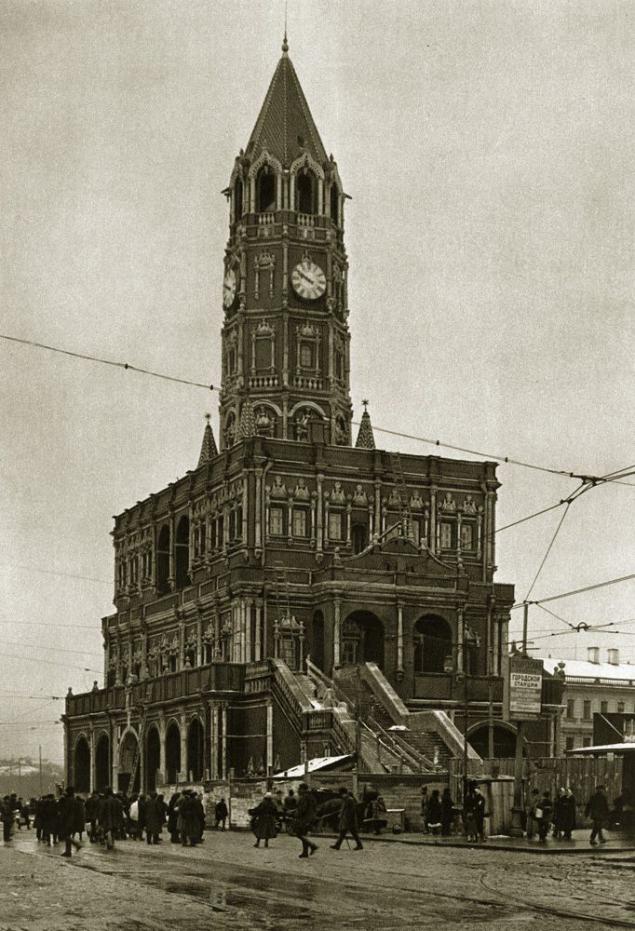
Good area, called by the Holy Monastery, demolished in 1938. In place of the bell tower in 1950 moved the monument to Pushkin, standing before this time exactly across the street on Tverskoy Boulevard. And in the foreground are not preserved Temple Demetrios
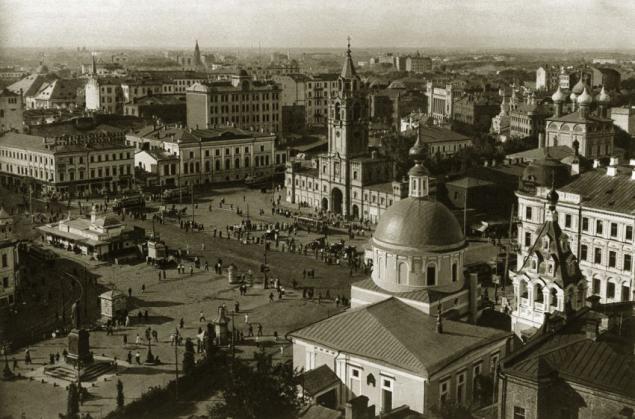
Instead of Yuri Dolgoruky on Tverskaya Square (then Soviet) in 1920 stood the obelisk of the Soviet Constitution, he also Sovestky Statue of Liberty.
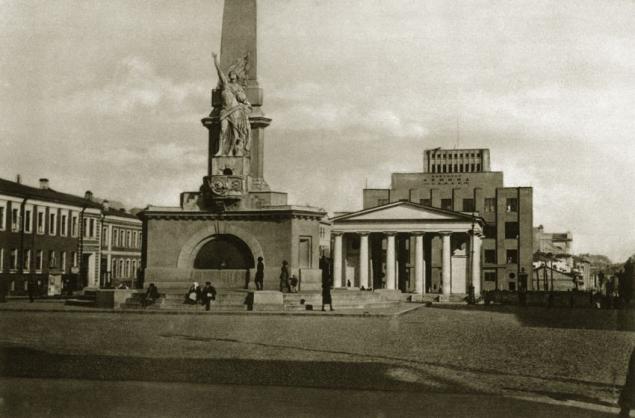
The obelisk was made in haste, and by the end of 1930 represented the pathetic, and even joke went: "Why do we have freedom against the Moscow City Council, because the Moscow City Council against freedom." Anyway tsikolpichesky monument dismantled.
Tverskaya Zastava and overpasses. Pay attention to the Old Believer church on the right. Location hard to find, but the church survived and is now followed by a huge glass office tower housing on the Belorussky Railway Station Square and the street Forest
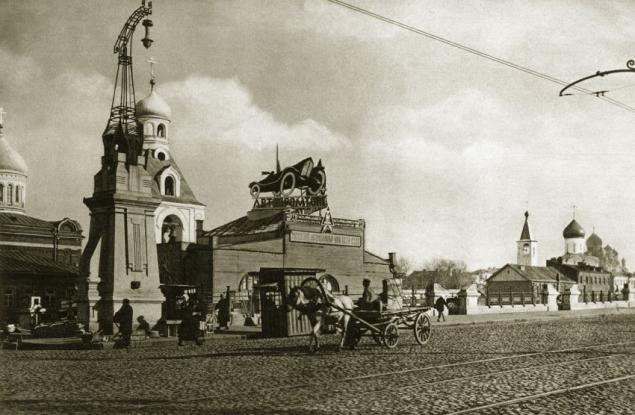
In the foreground is hardly dragged "lomovik" - truck driver, and at the same distance background proudly seeks an advertising vehicle "Avtopromtorga»
Hard to believe it, it's Triumphal Square ...
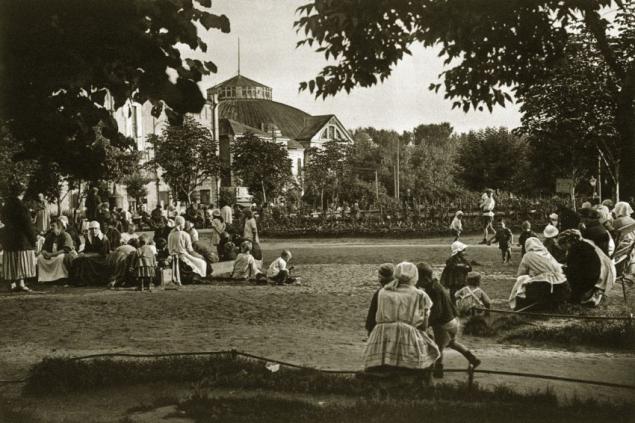
Now the middle is a monument to Mayakovsky Square is long gone, and the former Circus Nikitin Brothers (2nd State Circus after the Circus on Tsvetnoy Boulevard) radically rebuilt after the war for the Satire Theatre, although the dome in front of a gray box in the middle and left. About the former circus reminds the circular layout of the premises. Now walking Nicholas.
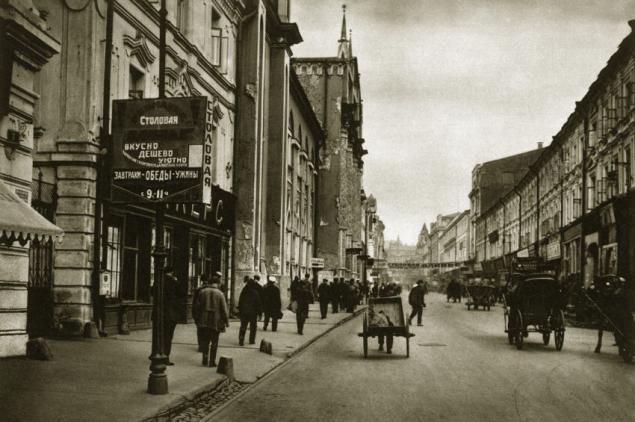
The area of the Bolshoi Theater
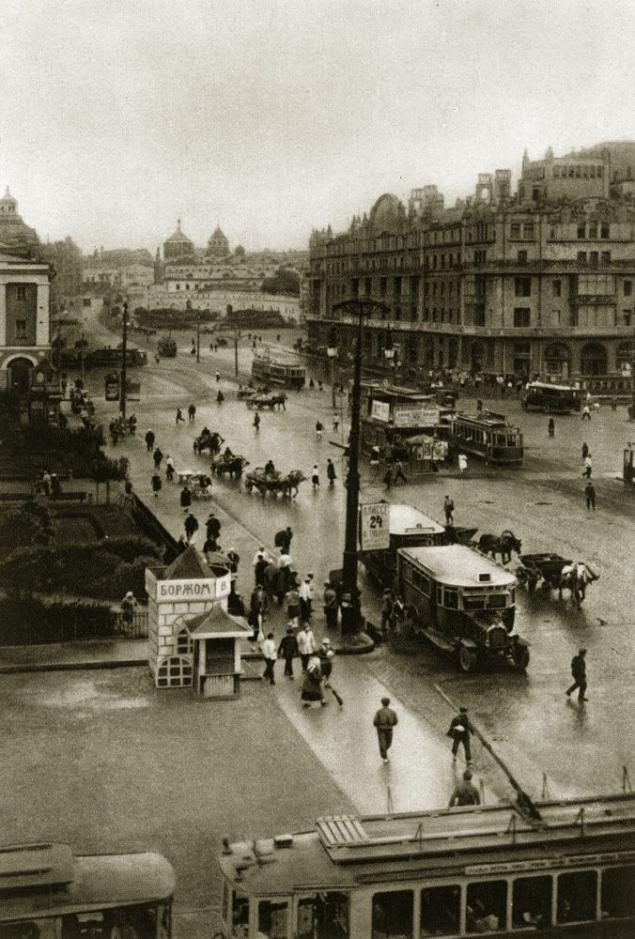
Even then, Moscow was the metropolis, but not so cyclopean, as it is now, but for some reason there were more transport. Even at this picture one can count about a dozen units of ground public transport. And now? And who is it prevented? This separately allocated different covering walkways and driveway. Trams are necessary to recover:
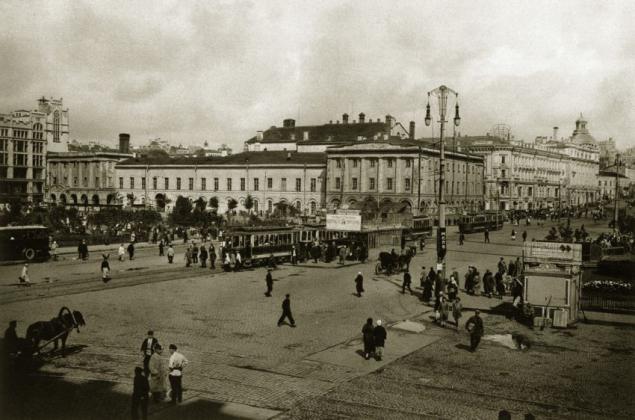
Market
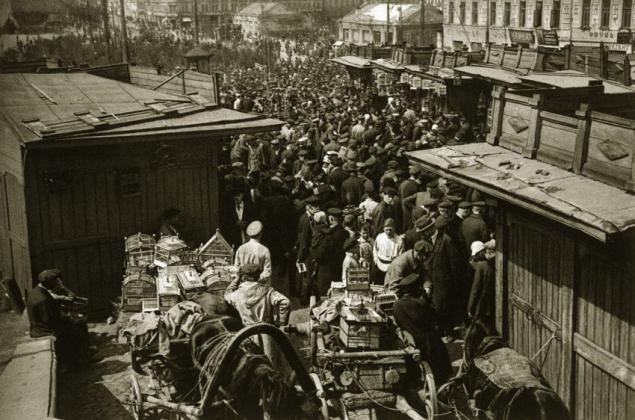
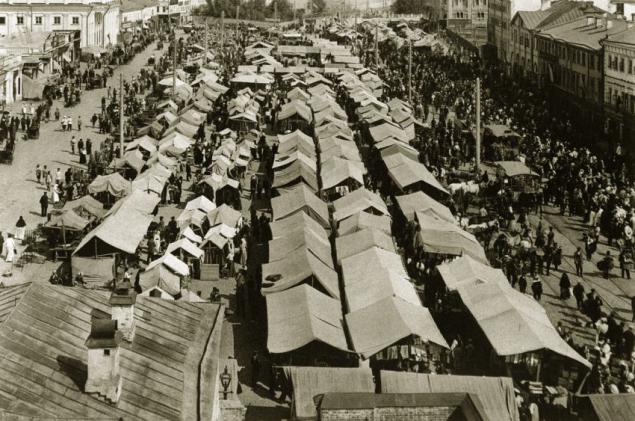
Yet demolished HHS
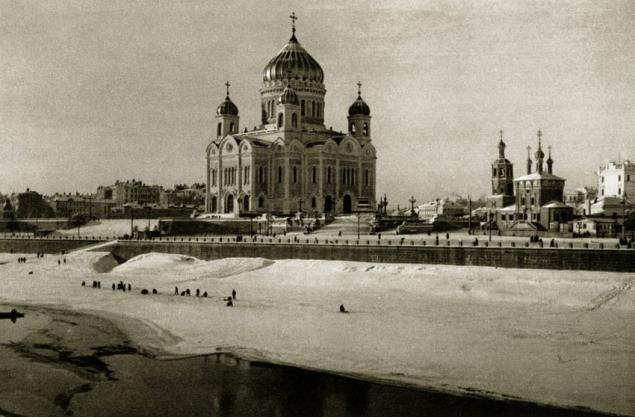
And this, again, does not believe in the Tver region Kamergersky lane.
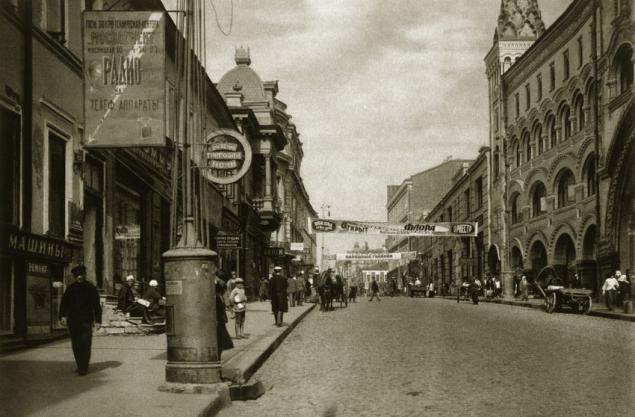
All we expanded and almost all demolished
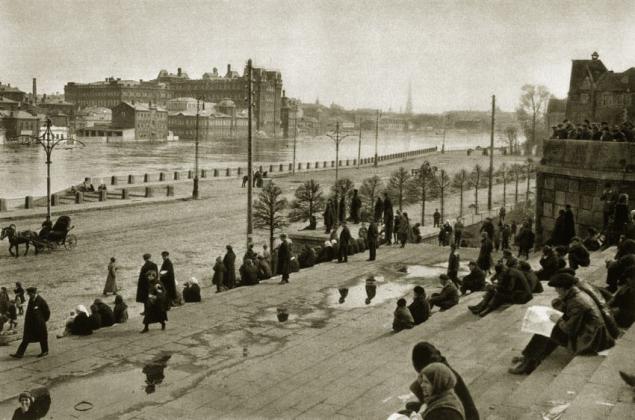
Yet advanced Borodino bridge with graceful pillars tram wires
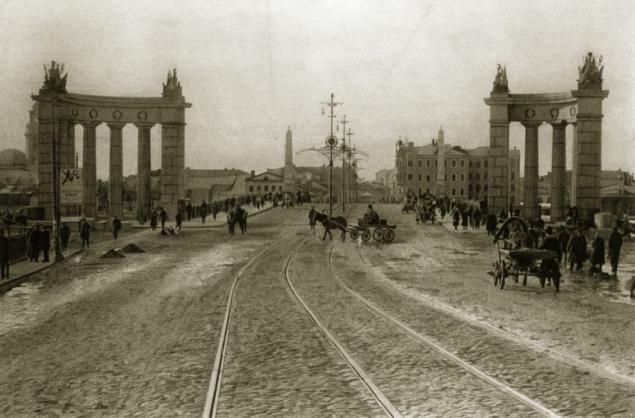
Old Bridge Moskvoretsky sharp ice axes on the supports. Ice drift were commonplace every spring, and it was necessary to protect bridges from the large ice floes.
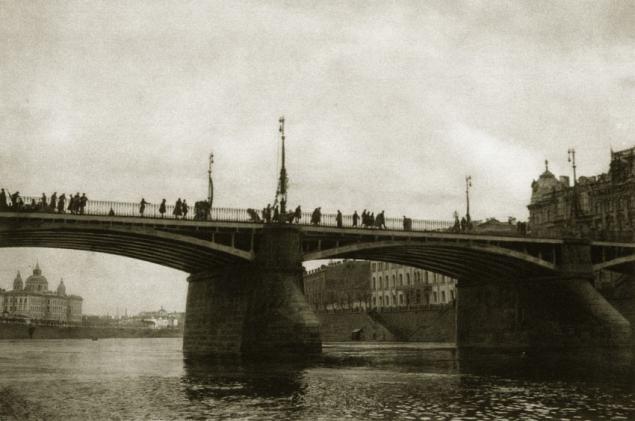
On the Moscow River in general was very lively
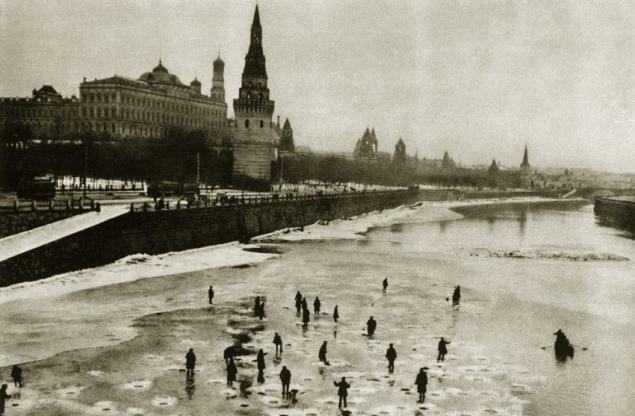
Flooding
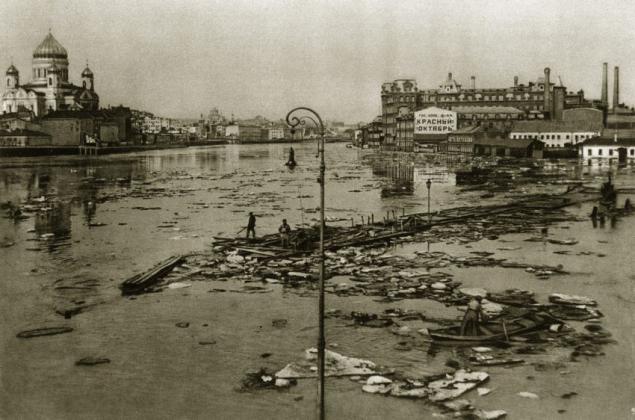
Fished
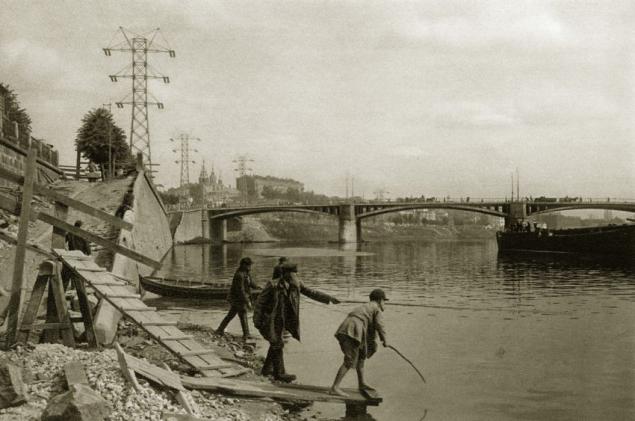
In winter, ice harvested for ice. Blocks of ice were placed for storage in the cellar, filled with sawdust and then sold the entire year until the next winter. Ice was indispensable in the economy, they filled the cabinets refrigerated to maintain the low temperature inside. Before the era of refrigerators is almost here. Business has been a considerable and profitable.
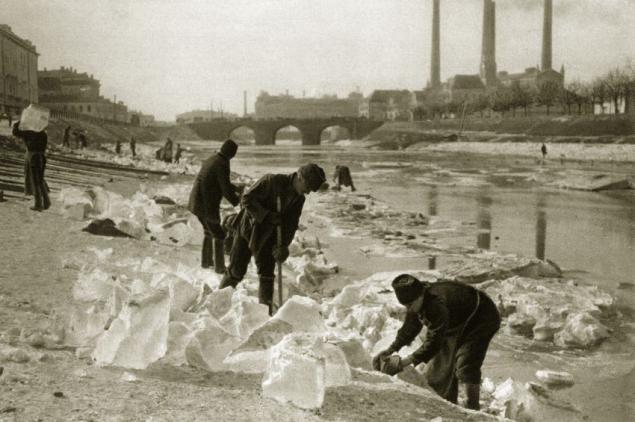
Laundry in the heart of Moscow
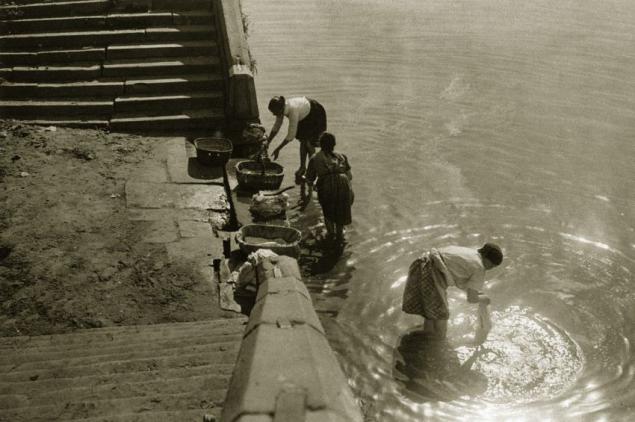
On the architectural appearance did not reflect, but technical progress then inspired many. It was necessary to reach power lines, and stretched out right in front of the Kremlin. Electrification of the whole country - the first thing!
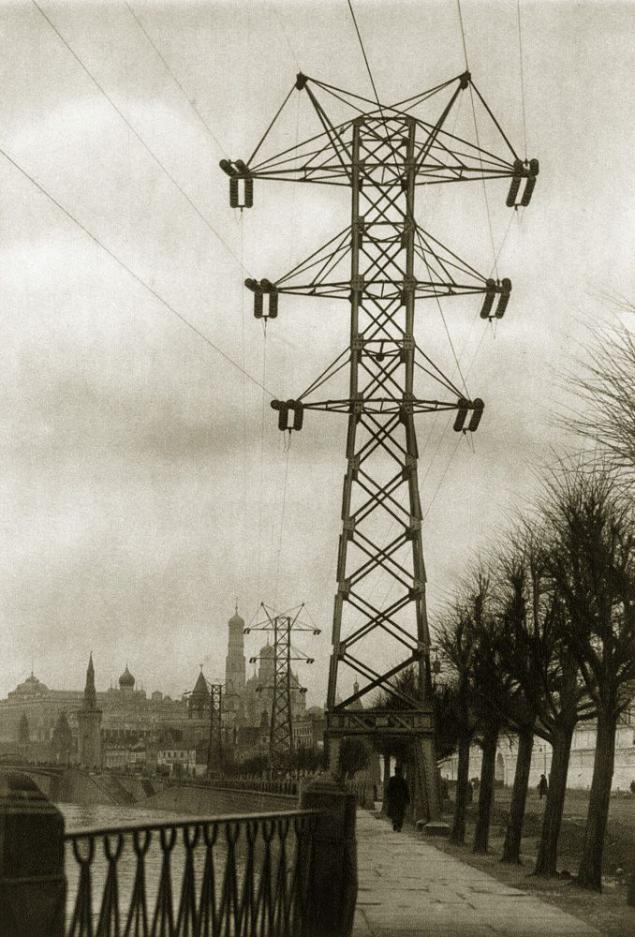
Well, finish, perhaps, at the Metropole Hotel, where boiled asphalt, the pavement has a ramp and stand on the sidewalk mushrooms ventilation serve to fresh air in sewer manholes.
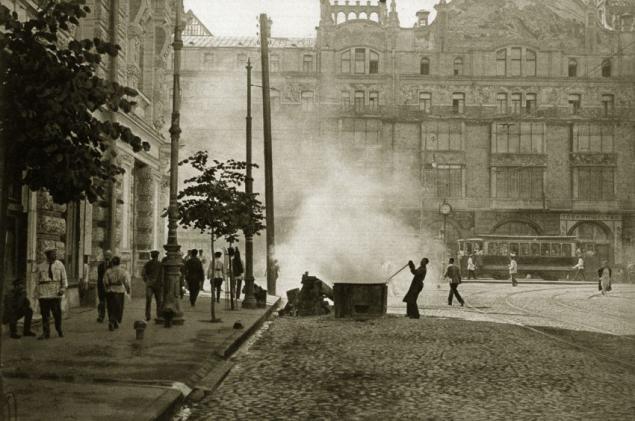
Source: zyalt.livejournal.com
View of the Moscow River, the Kremlin and Christ the Savior Cathedral to Big Moscow River bridge.

Winter View of Moscow from Sparrow Hills.

Note that before the construction of sluices, reservoirs and hydro level of the Moskva River varies greatly depending on the season. In the winter and hot in summer, for example, could greatly reduced, so that in some places you can go on foot, and the river. But every spring up, sometimes going beyond the edge of the embankment.
View of the Kremlin from the Kremlin

In the foreground, in the tent stands a monument to Alexander II the Liberator. For extensive galleries of the people monument called a bowling alley.
In 1918, work enthusiasts conducted Saturday and dismantled a monument to the king. On this Saturday, even Lenin came shabby timber, as in children's books, numerous beautiful illustrations, documentary chronicle not been so beautiful:

View of the Kremlin from the site of the Temple of Christ the Savior

On this and the next picture does not even want to comment on. Just Look at the pre-revolutionary more details. How to make lanterns, embankments tram poles. This urban culture had flourished even more in 1930, but after the war it went somewhere not there and we came to what we now see on the streets, in contrast to European cities, where the tradition has not been interrupted.

And almost still in the pre-revolutionary in headdresses. Exit without headgear - goof, and the ugly somehow. All the same, what is now the city in undershirt shirt-alcoholic roam.
View of the Kremlin towers and angular Beklemishev. Note tower has bleached, and the Kremlin is possible whitewashed because unpainted old Russian tradition means disorder. What came to power the Bolsheviks red and commanded the Kremlin contain only red.

Note that before the war, almost all Vasilevsky descent was built up, and the old bridge Moskovretsky is to the right, behind the scenes
Obsharpannosti white Kremlin embankment and comfortable with an alley

When all complain that, say, as opposed to any European city, in Moscow, there is the old town, do not hesitate to disagree that is. Old city of Moscow - the Kremlin is. This is the initial area within the ramparts, as in any other European city. While the authorities under Stalin finally closed access to the Kremlin, it was the entrance area - all the gates were open, you could walk through any tower. And now the official entrance to the Kremlin, Kutafya tower was a through

But the lost treasure of the Kremlin. Church of the Savior on Bor, known since 1330 and demolished in 1933

Church for many centuries, of course, was rebuilt, but was considered the oldest building in Moscow that, nevertheless, it did not save. In Moscow, I went to a legend that Stalin, driving in a car near the church and saw its walls piled wood in the hearts vokliknul "Disgraceful! Remove! "Makes clear what exactly was unhappy with the" father of the peoples "and were not demolished the temple.
New values:

Wooden Mausoleum

Immediately after the death of Lenin, first hastily built a cube, but in the same 1924 it was replaced by a wooden step pyramid, which in turn was replaced by a stone mausoleum quadrupeds all already in 1930. Especially touches tree on Red Square
Wall:


And this is one of the most beautiful squares of Moscow, unfortunately completely destroyed - Lubyanka

Visible narrow passage with Nicholas through China city wall with towers and a huge chapel Sv.Panteleymona. Please note that for ease of pedestrian paving stones torn straight track. And in the background next to the wall is a beautiful kiosk Mosgorspravki, like a rocket.
Another masterpiece not reached us of Peter's time - Sukharev Tower, standing midway Garden Ring on Sukharevskaya Square

Good area, called by the Holy Monastery, demolished in 1938. In place of the bell tower in 1950 moved the monument to Pushkin, standing before this time exactly across the street on Tverskoy Boulevard. And in the foreground are not preserved Temple Demetrios

Instead of Yuri Dolgoruky on Tverskaya Square (then Soviet) in 1920 stood the obelisk of the Soviet Constitution, he also Sovestky Statue of Liberty.

The obelisk was made in haste, and by the end of 1930 represented the pathetic, and even joke went: "Why do we have freedom against the Moscow City Council, because the Moscow City Council against freedom." Anyway tsikolpichesky monument dismantled.
Tverskaya Zastava and overpasses. Pay attention to the Old Believer church on the right. Location hard to find, but the church survived and is now followed by a huge glass office tower housing on the Belorussky Railway Station Square and the street Forest

In the foreground is hardly dragged "lomovik" - truck driver, and at the same distance background proudly seeks an advertising vehicle "Avtopromtorga»
Hard to believe it, it's Triumphal Square ...

Now the middle is a monument to Mayakovsky Square is long gone, and the former Circus Nikitin Brothers (2nd State Circus after the Circus on Tsvetnoy Boulevard) radically rebuilt after the war for the Satire Theatre, although the dome in front of a gray box in the middle and left. About the former circus reminds the circular layout of the premises. Now walking Nicholas.

The area of the Bolshoi Theater

Even then, Moscow was the metropolis, but not so cyclopean, as it is now, but for some reason there were more transport. Even at this picture one can count about a dozen units of ground public transport. And now? And who is it prevented? This separately allocated different covering walkways and driveway. Trams are necessary to recover:

Market


Yet demolished HHS

And this, again, does not believe in the Tver region Kamergersky lane.

All we expanded and almost all demolished

Yet advanced Borodino bridge with graceful pillars tram wires

Old Bridge Moskvoretsky sharp ice axes on the supports. Ice drift were commonplace every spring, and it was necessary to protect bridges from the large ice floes.

On the Moscow River in general was very lively

Flooding

Fished

In winter, ice harvested for ice. Blocks of ice were placed for storage in the cellar, filled with sawdust and then sold the entire year until the next winter. Ice was indispensable in the economy, they filled the cabinets refrigerated to maintain the low temperature inside. Before the era of refrigerators is almost here. Business has been a considerable and profitable.

Laundry in the heart of Moscow

On the architectural appearance did not reflect, but technical progress then inspired many. It was necessary to reach power lines, and stretched out right in front of the Kremlin. Electrification of the whole country - the first thing!

Well, finish, perhaps, at the Metropole Hotel, where boiled asphalt, the pavement has a ramp and stand on the sidewalk mushrooms ventilation serve to fresh air in sewer manholes.

Source: zyalt.livejournal.com
